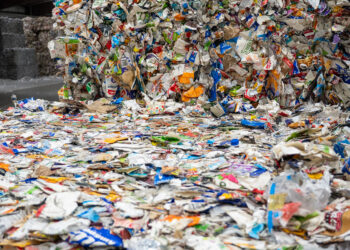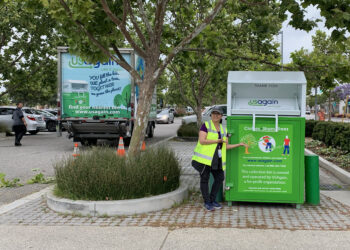Resource Recycling News
Nebraska awards $7m in recycling grants
The grants will help fund waste and litter reduction projects, recycling programs, and costs to collect scrap tires, HHW, electronic...
Republic Services waiting on fourth Polymer Center
The nationwide hauler said higher Polymer Center volumes helped offset lower recycled commodity prices in 2025, with a third in...
Carton recycling reaches 63% of US households
Carton recycling access rose to 63% of US households in 2025 after 2.5M homes gained service, with 86% of recycling...
Report details how to make CA textile recycling work
A new report confirms the sentiment that led to a new textile recovery law in California, detailing just how much...
Bipartisan reps introduce bill on recycling claims
Legislators introduced the Recycled Materials Attribution Act in the US House, drawing support from a new industry group and scrutiny...
HDPE, PP bales rise as paper fiber and cans stabilize
National average prices of post-consumer material bales were flat to higher on the month.
Terex beats ESG integration targets as REV group merger closes
Terex exceeded $25 million in ESG integration synergy targets and completed its REV Group merger, expanding its specialty equipment platform...
Texas sues over dumped wind turbine blades
The state attorney general sued Global Fiberglass Solutions over alleged illegal storage and disposal of all turbine blades at two...
Court partially blocks Oregon EPR law, dismisses bulk of lawsuit
An Oregon federal court issued a limited injunction halting the state's EPR law for members of NAW, but rejected the...
Member states select new chair for global plastics treaty
During a short session, the Intergovernmental Negotiating Committee elected Chilean diplomat Julio Cordano to continue efforts toward an internationally binding...






















